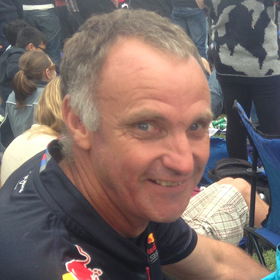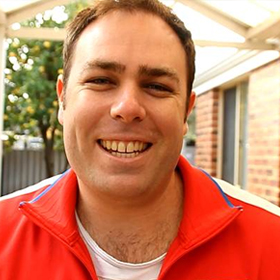
There are a lot of people who refer to trading as being a great way to gain passive income. But is it truly passive? Or is trading simply flopping hard work?
Ok, before we assume everyone knows what passive income is we probably need to define it. There are many who don’t know, and there’s no shame in that, as we all had to discover it at some point.
Let’s start with its complete opposite … “Active income”. Active income is what you have to “actively” do to gain income. It can be your job, or for some their business. It’s what you exchange most of your precious time for, in order to make a buck.
Passive income is money that comes in with minimal time and personal exertion. So for many who create passive income, there are certain types of investing avenues that provide this outcome. They have an asset that generates a cash flow, that then provides them with income to either reinvest or spend.
 To get to the point of creating passive income, most people have to start by generating active income to create enough cash to park into an investment, that will then provide for them passive income. That is, money they don’t have to work particularly long or hard to get. There is very little time invested in it, once it is set up.
To get to the point of creating passive income, most people have to start by generating active income to create enough cash to park into an investment, that will then provide for them passive income. That is, money they don’t have to work particularly long or hard to get. There is very little time invested in it, once it is set up.
Now that we’ve cleared that one up let’s turn our attention to trading. Is it passive or active?
Well to be fair we’d argue it is a bit of both.
Traders who trade futures or FOREX generally must actively sit on their computer waiting for things to line up on their charts to decide whether to place a trade. However they choose when to be on that machine rather than an employer dictating to them when they must clock in or clock out. You could argue the market is their employer, but they choose when to engage with it. They generally have to monitor the trade once they are in it. And for day traders they generally have to choose when to get in or out of that trade, even if they are there for only a few seconds, or a couple of minutes.
Options traders are generally active in hunting down a trade they like. However, once they place a trade they spend minimal time monitoring their trade, provided it is going their way. That is, the trade is successfully going to plan. This is because the duration of the trade can generally last a number of weeks, and in some cases months or even years. This allows them to go away and have a lifestyle while checking in on their trades from time to time. Most options traders will check in on their trades on a daily basis.
However, if a trade is going against them, (ie not doing what it was supposed to, and it’s a threatening to lose them money), then they have to be more vigilant in their monitoring, and actively protect their money in their trading account.
Additionally, some traders will spend more time “monitoring” their trades than others. Those who love trading are more likely to look into it further, and be more active in their reviews than those who are busier with other activities.
Also, some active traders who are extremely busy, will place a trade that they can be less active in monitoring.
So you can see some of this comes down to personal choice, the type of trade, and whether a trade does what the trader wants it to do.
Knowing how active you have to be is a key decision for many traders when determining what kind of trading they want to do, or are able to do, given their lifestyle.
Our founder instantly dismissed a particular style of trading when he discovered he would have to be on his computer watching the markets starting at 10pm or midnight. That just wasn’t going to work for his family situation at that time.
For a trader starting out, they need to think about their lifestyle, what’s practical, and more importantly their attitude to risk. Different types of trading provide different levels of risk.
Ultimately trading should be run like a business. That business needs to be actively monitored to ensure it is on track to achieve its goals. Thankfully, there is less time involved in monitoring a trade when compared to what a traditional business might require. There are no issues with customer service, active and regular reporting, staff issues, and all the other things a general business must address.
We’ve always found it a very attractive proposition that you can go to a laptop or computer, place a trade, and potentially make a tidy profit. If only every business was that straight forward!
You are invited to discover more about options trading by attending our FREE class presentation on “7 Things You MUST Know About Options Trading”.
DISCLAIMER: Trading Institute is not a licensed financial planning firm. We are simply an education company, who will give you factual information. We do not give any general or specific advice around options, trading, or anything else. Please see a licensed financial planner when it comes to any investment advice you need.
Derek Whitaker
Latest posts by Derek Whitaker (see all)
- A Game of Trades; the stock market is every one’s for the taking - February 10, 2016
- Couple’s MUST Discuss the “M” Word - January 20, 2016
- After completing the 3 month course in just over 1 month, what she did next will surprise you… - December 22, 2015




NO COMMENT
LEAVE A COMMENT